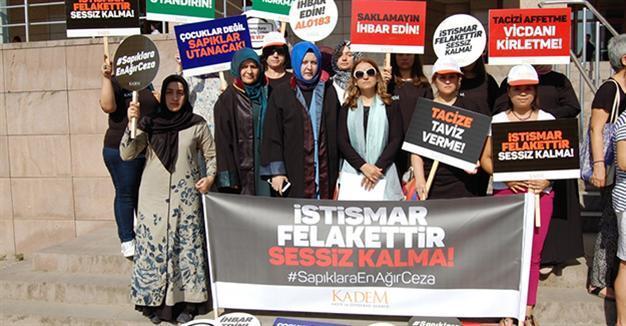3,000 abusers, rapists avoid jail time by marrying their victims in Turkey: Appeals court
ANKARA
 The testimony of a Turkish Supreme Court of Appeals representative has revealed the sad truth about the practice of victims of sexual abuse being married to their assaulters.
The testimony of a Turkish Supreme Court of Appeals representative has revealed the sad truth about the practice of victims of sexual abuse being married to their assaulters. Mustafa Demirdağ, the head of the Supreme Court of Appeals department which oversees sexual crimes, said the number of such marriages which were officially registered had reached nearly 3000, according to daily Milliyet.
Speaking to a parliamentary commission formed to investigate and prevent sexual crimes, Demirdağ said children from 5 to 18 years old could be subjected to sexual abuse, adding that girls between the ages of 12 and 15 were more easily tricked by abusers.
Demirdağ mentioned several cases, one of which was similar to the story of a TV series called “Fatmagül’ün suçu ne?” (What is Fatmagül’s Crime?), which became highly popular a couple of years ago. “Three persons kidnaped a girl. Three of them raped her. When one of them married her, the sentences for all three were lifted. That type of marriage is not acceptable. It is cruel to force someone to marry a person she does not want [to marry] and force her to spend the rest of her life with him,” he said.
16-year sentence in cases of child abuse
While talking about the practice of abusers marrying their victims, Demirdağ said the number of such marriages had reached some 3000, adding that sentences of 16 years and eight months in prison were given if there was a complaint in these types of cases. As an example, he talked about the case of a 15-year-old girl who fell in love with a boy in her neighborhood. “She called the boy on the phone that night and said she would commit suicide if he did not come to kidnap her. Then the boy kidnaps her. Afterwards they get married according to the norms of the neighborhood. When the case came to us, they were already married officially and they had three kids. Before the law numbered 6545 came into force, the boy would have been sentenced to a minimum eight years and four months [in prison]. Now it is 16 years and eight months. Do I find this fair? No I don’t. But I am the implementer of the law. But not all the cases fit the same pattern. Yet we do not make categorizations among them.”
















